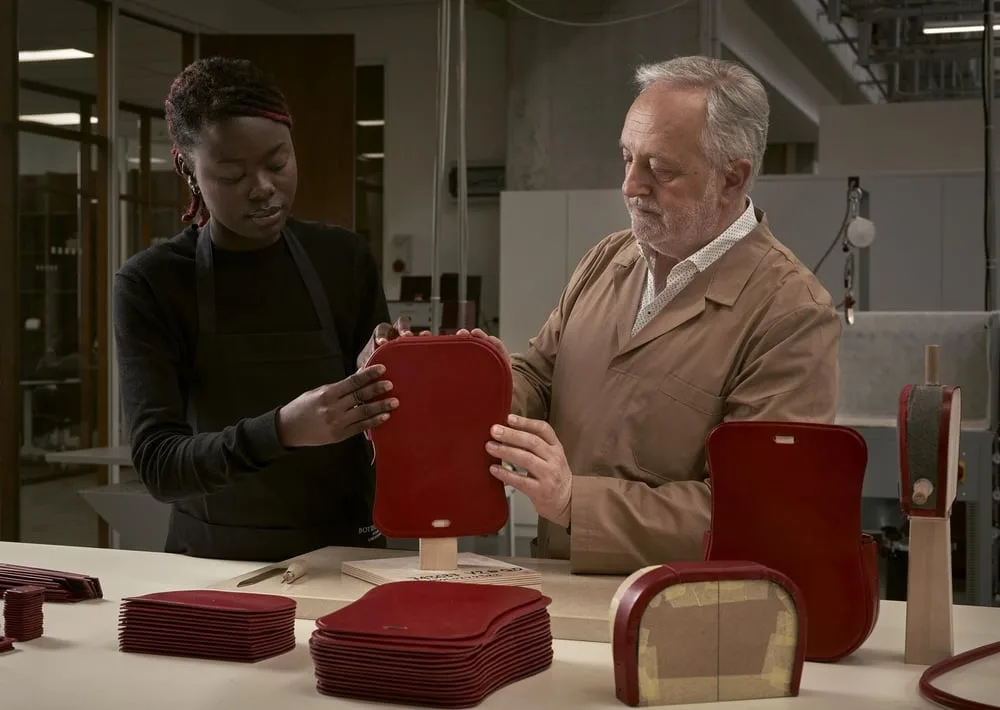In response to a shortage of skilled craftsmen in the luxury sector, companies and institutions are launching diverse training courses and initiatives. Their goal is to preserve and pass on essential skills to the younger generation, which are at risk of vanishing but lie at the core of the luxury industry. Italy, known for its numerous small and medium-sized enterprises (SMEs) that safeguard these age-old skills, has emerged as a European hub for craftsmanship. Additionally, governments are announcing various initiatives to protect these professions. For example, the Italian government plans to open a Made in Italy high school in September 2024.
A 2022 survey by the Comité Colbert revealed that 85% of luxury houses are grappling with significant recruitment challenges in their production sectors, resulting in almost 20,000 unfilled positions.
Altagamma, an association of Italy’s luxury goods companies, predicts that over the next five years, luxury brands will need to hire 346,000 professionals in top-level trades, including over 40,000 in fashion and leather goods. Unfortunately, many craftsmen are nearing retirement without having passed on their knowledge. These trades are undervalued among young people and their parents, or remain relatively unknown.
The Italian Chamber of Fashion (CNMI) estimates that 90,000 individuals will be required in the next three years to replace retiring craftsmen and fill new industry positions. It can take up to a decade to train a skilled technician.
Luxury brands are taking action to accelerate their training programs. On October 17, LVMH announced the creation of a «center for excellence in the trades,» including a training facility and practical craft workshops for the general public. LVMH, a leader in the luxury sector, established its Institut des métiers d’excellence (IME) in 2014 and now offers 288 continuing education programs worldwide.
In the same week, Bottega Veneta launched its Accademia Labor et Ingenium, an academy based in Montebello Vicentino, offering a comprehensive training program for 50 students and refresher courses for the label’s employees. Other brands within the Kering Group, such as Gucci, with its School of Love in Tuscany, and Alta sartoria Brioni, which trains the label’s tailors, have embarked on similar paths.
Hermès established its ‘Ecole des savoir-faire’ to preserve its craft heritage, focusing on leather goods. Last year, it received accreditation from the Fédération française de la maroquinerie (French leather goods federation) to issue professional qualification certificates (CQP) in cutting and stitching.
Tod’s, the luxury shoemaker, established the Bottega dei Mestieri school a decade ago to train its craftsmen. The group’s leader, Diego Della Valle, is proposing the creation of a «master craftsman» diploma to make these professions more appealing to young people.
Jaeger-LeCoultre, the Swiss watchmaker, partnered with the Michelangelo Foundation to launch the ‘Homo Faber Fellowship,’ a program promoting professional integration by bringing together graduates in applied arts and crafts with master craftsmen.
The industrial groups specializing in luxury goods production have also launched initiatives. Gruppo Florence established a «diffuse academy» for its 26 companies, offering sewing courses.
Holding Moda, the fashion division of Holding Industriale (Hind), which brings together eleven companies, created the Accademia Holding Moda in 2020, focused on craft apprenticeships and the industrialization of processes and products. It is launching the ‘Storie di Futuro made in Italy’ initiative in partnership with LaFabbrica to provide pathways to fashion careers in secondary schools.
Raising awareness of these manual professions among the very young remains a challenge, leading to various initiatives in the industry. These include events such as «Sow me» by LVMH, the «Savoir pour Faire» campaign by the Comité Stratégique de Filière Mode & Luxe in 2019, and the «Les De[ux]mains du Luxe» event initiated by the Comité Colbert last year. The second edition will be held at Station F from December 14 to 17, featuring 30 companies, an increase from the previous year’s 20.


































